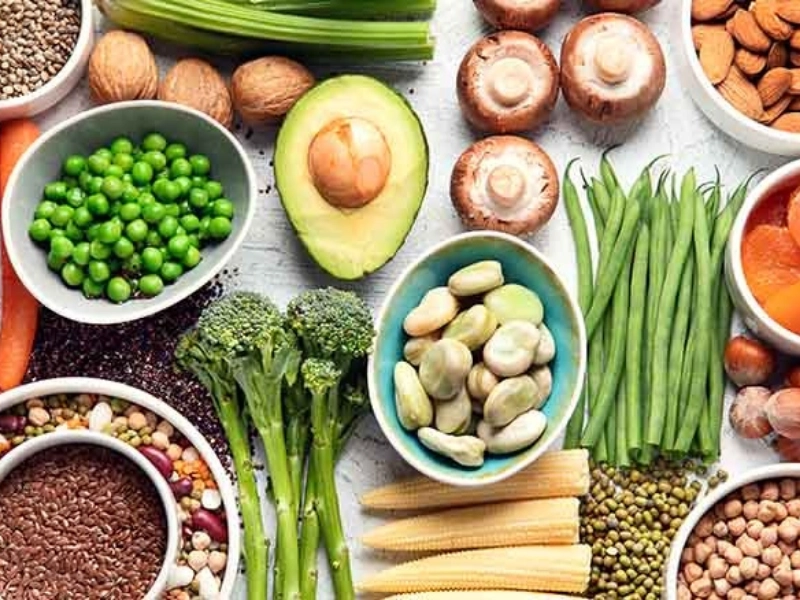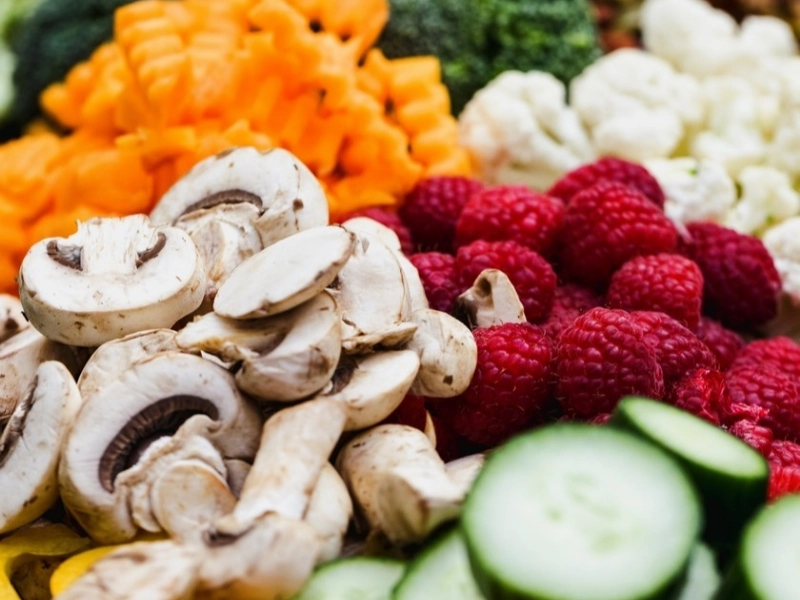The Benefits of a Plant-Based Diet for Your Health and Well-Being
When a plant-based diet consists of whole foods such as grains, legumes, vegetables, and fruits, it can be high in nutrients. It can also include fortified cereals, nuts and nut butters, tofu, tempeh, and other meat and dairy alternatives.
A carefully thought-out plant-based diet can satisfy dietary requirements for zinc, calcium, iron, and vitamins D and B12. But in order to stay away from added fats, carbohydrates, and sodium, it's crucial to read labels.
1. Lowers cancer risk

Whole grains, legumes, fruits, and vegetables are all part of a plant-based diet. It also contains heart-healthy fats from nuts, seeds, avocados, and olives.
According to research, those who eat a plant-based diet are less likely to develop cancer. The phytochemicals in plants that combat disease are mostly to blame for this.
Nutrient requirements, such as those for protein, vitamin B12, calcium, iron, potassium, and omega-3 fatty acids, can be readily satisfied by a well-planned plant-based diet. It's critical to avoid added sugars and obtain these nutrients from a range of sources.
2. Lowers heart disease risk

A reduced intake of saturated fat and zero dietary cholesterol in a plant-based diet can help prevent artery blockage and blood flow restriction. Moreover, it has a lot of potassium, which helps control high blood pressure.
Plant-based eaters have a lot of options at their disposal; they can choose to be flexitarians, cut back on meat and dairy, or completely give up all animal products. The secret is to eat a wide range of fruits, vegetables, whole grains, beans, nuts, and seeds. In patients with type 2 diabetes, it can also help the beta cells that produce insulin work better.
3. Lowers diabetes risk

A plant-based diet has been linked to a lower risk of diabetes, according to studies. It might also aid in weight loss and better glucose metabolism.
Fruits, vegetables, whole grains, legumes, nuts, and seeds are all part of a plant-based diet. It's advised to put these meals on two-thirds of your plate and then top with lean proteins like fish or chicken.
You can get all the nutrients you need from a plant-based diet if you plan it correctly. On the other hand, if you cut out anything that comes from animals, you may be more prone to nutritional shortages.
4. Lowers Osteoporosis Risk

Whole foods, such as fruits, vegetables, whole grains, beans, legumes, and nuts, are included in a plant-based diet. It doesn't necessarily mean giving up meat; rather, it emphasizes eating more plant-based meals where plant-based protein is the main source and meat is only used as a side dish.
Eating a plant-based diet may help lower body weight, blood pressure, cholesterol, and the risk of chronic illnesses, including diabetes and heart disease. In addition, it supplies calcium, iron, vitamin B12, and omega-3 fatty acids and promotes weight-bearing exercise.
5. Lowers Alzheimer's Disease Risk

Whole foods, such as fruits, vegetables, whole grains, beans, legumes, nuts, and seeds, are the main components of a plant-based diet. It also has a healthy quantity of fiber, which is good for the gut and aids with regular bowel movements.
Depending on your individual tastes, the diet may limit or completely eliminate animal products (often referred to as a vegan diet). Consuming a plant-based diet may also result in higher intakes of minerals such as folate, zinc, vitamin B12, and omega-3 fatty acids. These nutrients lessen Alzheimer's disease and cognitive loss.
6. Lowers the Chance of Dementia

Foods, including fruits, vegetables, whole grains, legumes, nuts, and seeds, are the main components of a plant-based diet. Recommendations for calories and nutrients can be easily met with a well-planned plant-based eating regimen.
Some decide to just eat plant-based foods, while others restrict their intake of dairy, fish, and meat. In any case, to strengthen your immune system, make sure you get enough protein, vitamin B12, and omega-3 fatty acids. Fortunately, other foods like avocado, tofu, beans, and quinoa also contain these minerals.
7. Lowers the risk of high blood pressure

Limiting salt consumption can be beneficial while following a plant-based diet. It may readily satisfy calorie and nutritional needs and is also high in nutrients.
It avoids items like meat, dairy, and processed foods in favor of whole fruits, vegetables, grains, and beans. Additionally, it can assist people in avoiding diets high in sugar, salt, and saturated fats. Legumes, nuts, and seeds are good sources of protein for a plant-based diet, as are fortified foods and nutritional yeast. Moreover, foods high in calcium, mushrooms, and morning cereals enriched with iron and vitamin B12 may be included.
8. Lowers Osteoporosis Risk

Osteoporosis is a bone disease that can result in shattered bones. It can be avoided by eating a plant-based diet. Iron, calcium, vitamin D, and protein can all be found in this kind of diet.
Fruits, vegetables, whole grains, legumes, nuts, and nut butters are examples of healthy fats found in a plant-based diet, along with entire meals. A plant-based diet that is carefully thought out can satisfy all nutrient requirements. It's crucial to remember









